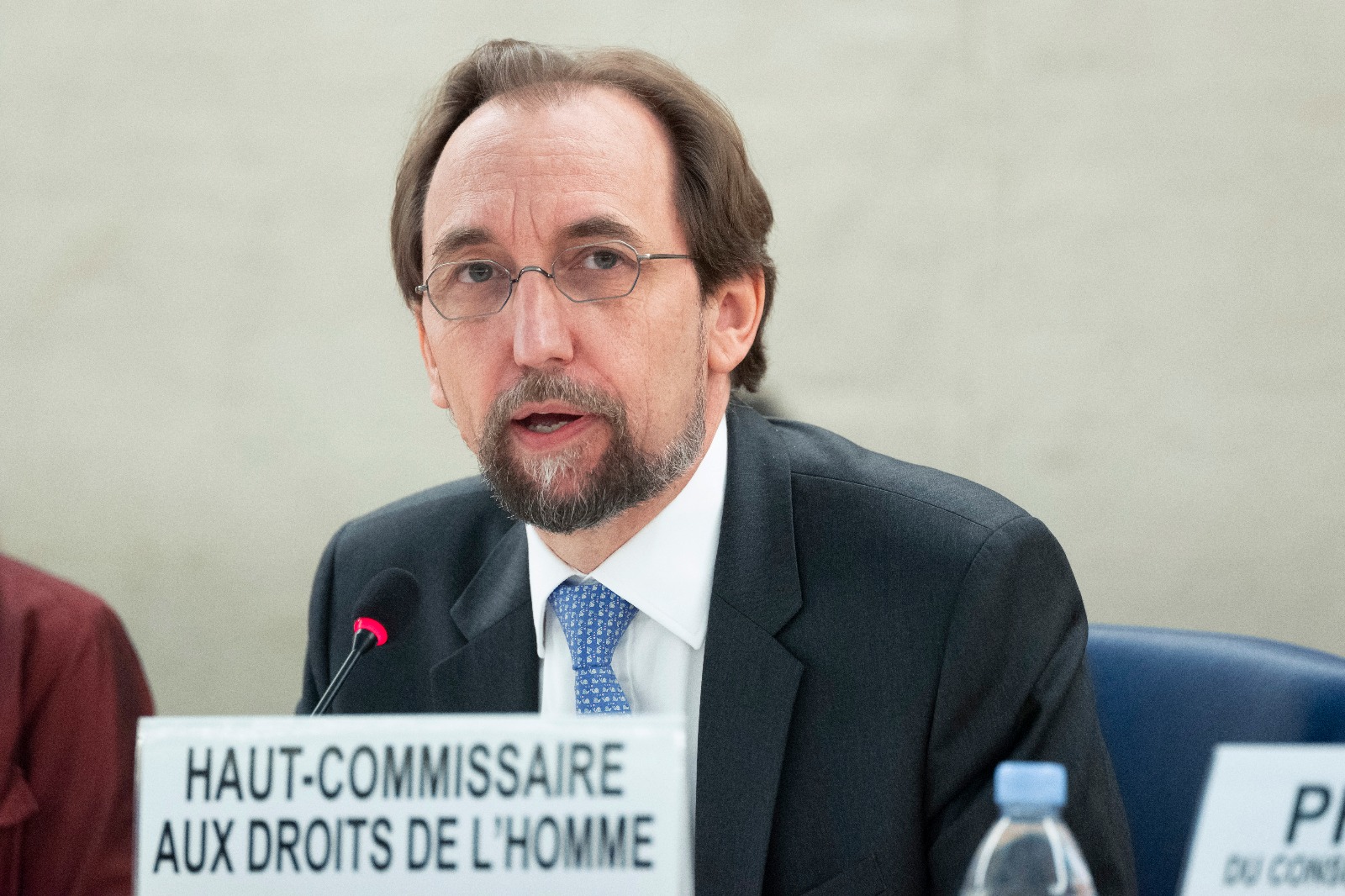18 June 2018 – Today, during his remarks at the opening of the 38th Session of the United Nations Human Rights Council in Geneva, the High Commissioner for Human Rights, Zeid Ra’ad al-Hussein, sharply criticized Bahrain for its continuing refusal to cooperate with the Office of the High Commissioner and the mandates of the Human Rights Council Special Procedures. He expressed particular dissatisfaction over Bahrain’s “continued crackdowns on civil society” and the promulgation of legislation that restricts activists’ and members’ of political societies rights to political participation.
Americans for Democracy & Human Rights in Bahrain (ADHRB) welcomes the High Commissioner’s remarks and shares his concerns. We call on Bahrain to issue an open invitation to all mandates of the Special Procedures and the High Commissioner Zeid’s office, and to immediately and unconditionally release all prisoners of conscience and lift restrictions on political participation and civil society activity.
Since June 2016, the Government of Bahrain has engaged in a systematic and widespread campaign against political activists, rights defenders, and Shia clerics. Officials have targeted or closed several political societies, including Al-Wahdawi, Al-Wefaq, formerly Bahrain’s largest political group, and Wa’ad. This follows the closure of the Islamic Action Society, also known as Amal, in 2012 and the arrest and sentencing in 2012 of prominent political leaders like Hassan Mushaima. The targeting and closure of opposition political societies has come with the prosecution of hundreds of members of the societies, from the arrest and sentencing of prominent political leaders Sheikh Ali Salman, Secretary General of Al-Wefaq, Ebrahim Sharif of Wa’ad, and Fadhel Abbas of Al-Wahdawi, to rank and file members.
Bahrain has also worked to end independent human rights activism, with authorities targeting and jailing defenders for speaking out against the deteriorating human rights situation, including widespread and systematic torture, arbitrary detention, disappearances, and impunity for perpetrators of these human rights violations. To this end, the government has repeatedly jailed and harassed prominent defenders Nabeel Rajab, Ebtesam al-Saegh, Abdulhadi al-Khawaja, Dr. Abduljalil al-Singace, and Abdulwahab Hussain, as well as dozens of others. Along with suppressing civil society and imprisoning human rights defenders, Bahrain has targeted Shia clerics, including Sheikh Ali Salman of al-Wefaq, Sheikh Abdulhadi al-Mukhoder, Sheikh Mohammed al-Miqdad, and Sheikh Mirza al-Mahroos, among many others.
Most recently, in late May 2018, the Bahraini government passed legislation that would permanently ban members of dissolved political opposition societies from seeking election, in an effort to neuter political opposition ahead of the 2018 parliamentary elections. As a result, the legislation closes what little remains of political space in Bahrain.
As it has engaged in this widespread crackdown, Bahrain has increased its combative rhetoric and stance towards international human rights mechanisms, including the Office of the High Commissioner and the mandates of the Special Procedures. The government has refused to allow a Special Rapporteur to visit the country for over five years, and has repeatedly postponed the scheduled visit of the former Rapporteur on torture, Juan Mendez, effectively cancelling it. Government officials have also slandered High Commissioner Zeid and the Human Rights Council.
“The High Commissioner appears rightfully frustrated with Bahrain’s failure to engage constructively with his office throughout his tenure. Throughout his term as High Commissioner, the human rights situation in Bahrain has deteriorated drastically, with the further prosecution of the small remnants of Bahrain’s once vibrant civil society,” says Husain Abdulla, Executive Director of ADHRB. “But now, ahead of the 2018 parliamentary election, it is crucial that the United Nations and international human rights mechanisms engage critically with Bahrain. The international community must step up to encourage this engagement and pressure Bahrain to meet its international commitments. We hope the next High Commissioner will follow the good work of High Commissioner Zeid, and that the Human Rights Council extends greater political support for addressing the human rights crisis in Bahrain.”
ADHRB welcomes the High Commissioner’s critical remarks on Bahrain and its lack of international engagement. We call on Bahrain to immediately halt its ongoing deterioration in human rights, release and pardon all prisoners of conscience, and lift restrictions on political engagement. Moreover, we call on Bahrain to embark upon significant structural changes in cooperation and with input from the Office of the High Commissioner for Human Rights and the mandates of the Special Procedures.





